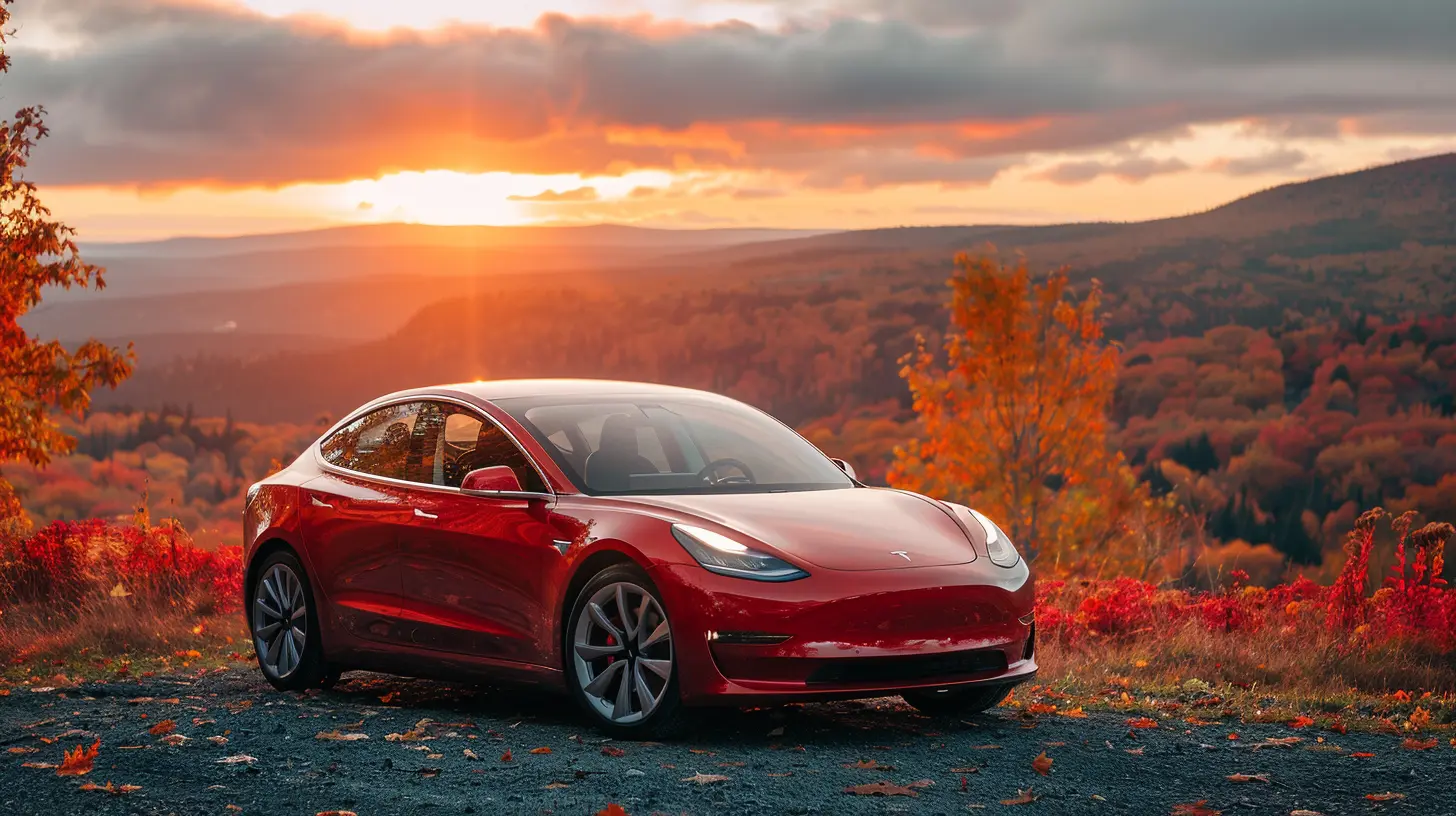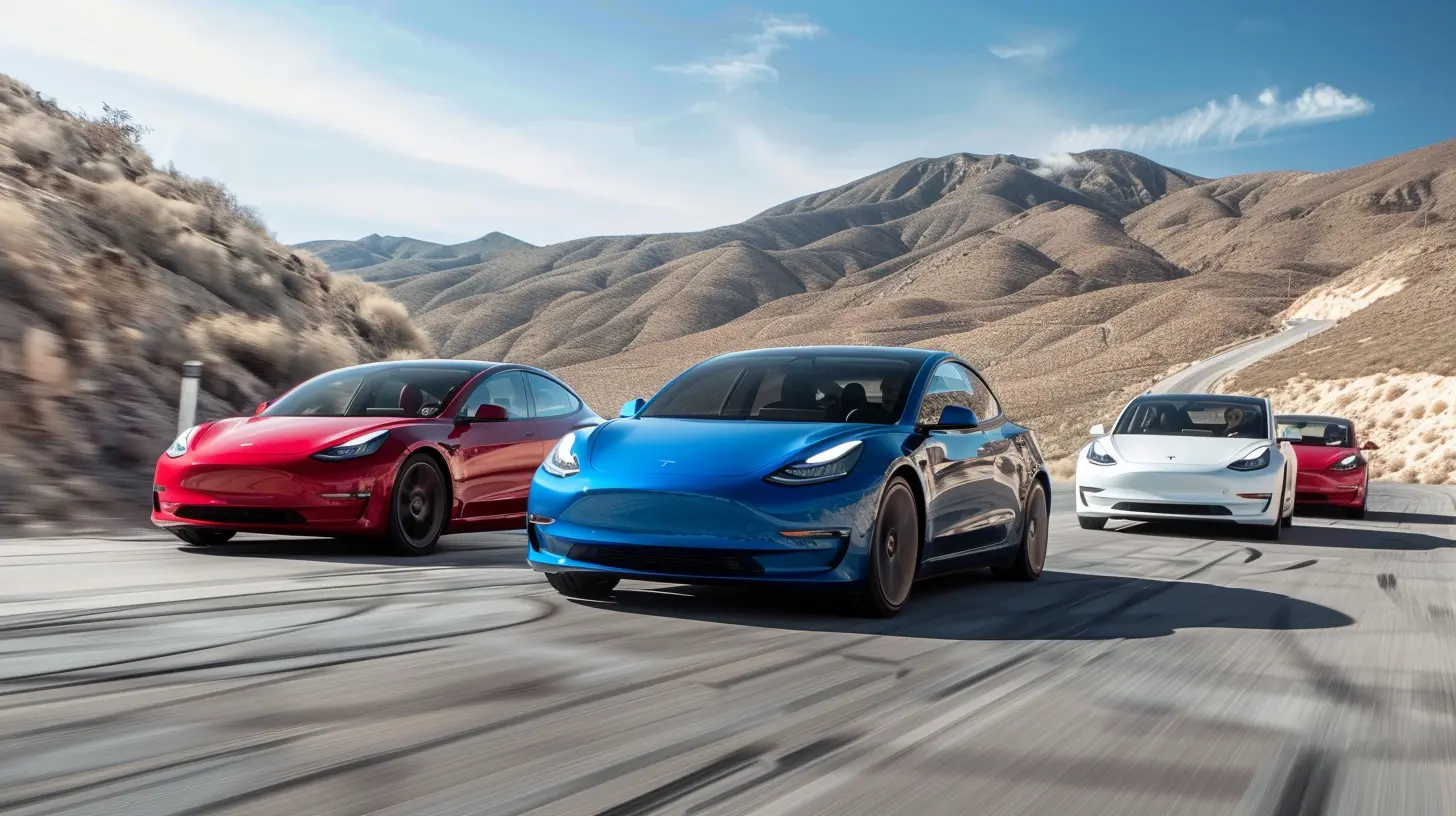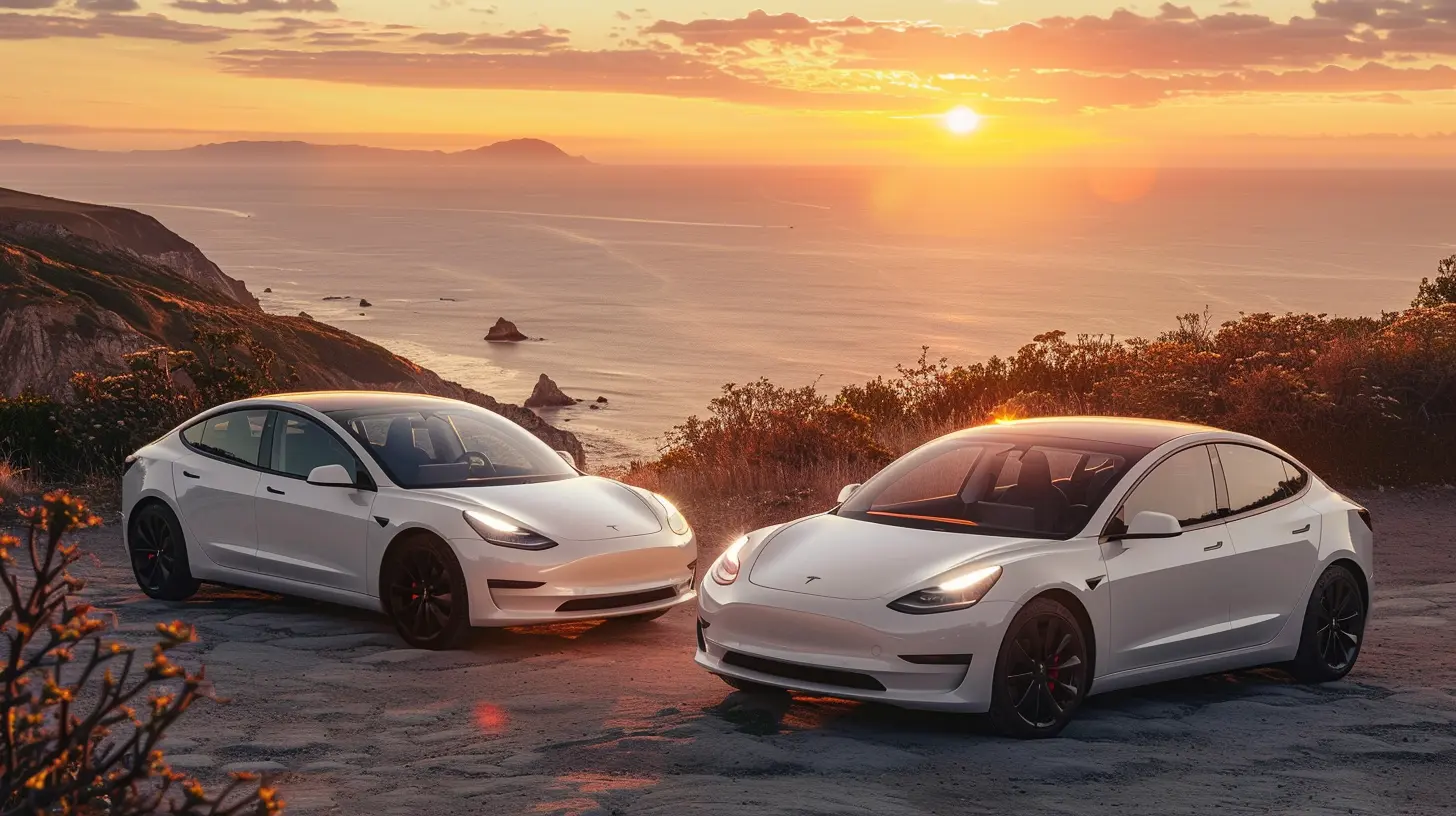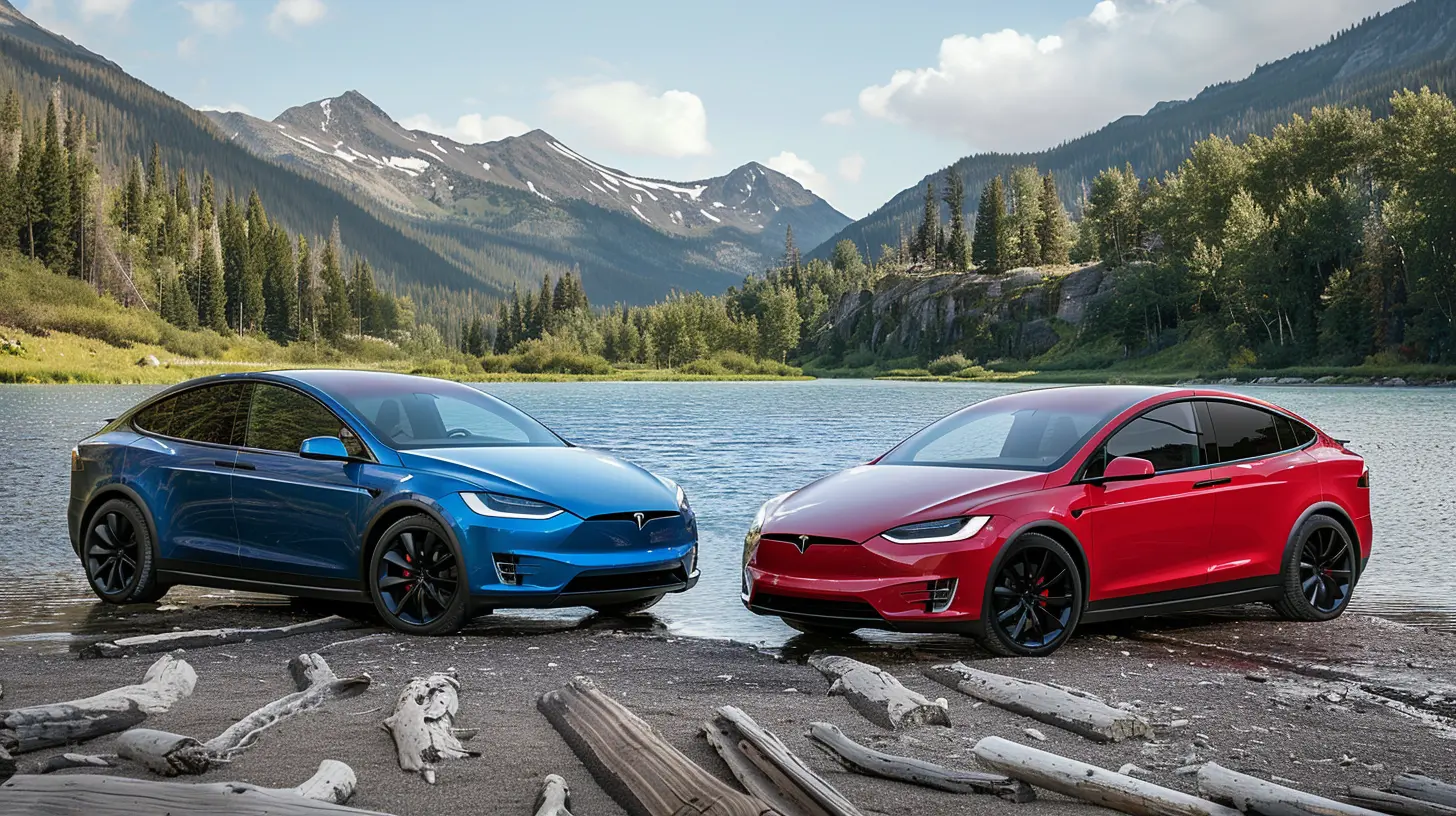How to Find the Best Deals on Electric Vehicles
18 September 2025
Alright, so you're thinking about buying an electric vehicle (EV). Good for you! That's a bold, eco-conscious move… and also quite possibly the most financially confusing decision you’ll make since you bought that juicer you used once.
Let’s be real here: EVs are the shiny new toys of the auto world. Everybody wants one, nobody wants to pay full price, and somewhere between sticker shock and tax credit confusion, you’re just trying to figure out how not to go broke while saving the planet.
Well, buckle up (pun absolutely intended), because we’re diving into the wild world of electric vehicle deals — where logic takes a backseat, and buzzwords like “range anxiety” and “clean energy” ride shotgun.

Why Are EVs So Darn Expensive?
Before we start hunting for deals, let’s address the high-voltage elephant in the room: WHY do electric vehicles cost more than that trip to the moon Jeff Bezos just casually took?EVs are packed with advanced tech, massive batteries, and innovation that’s still relatively new to the mass market. It's like buying a smartphone on steroids with wheels. So yes, the upfront cost is scary, but don't forget — you're also dodging gas prices that look like lottery jackpots these days.
Plus, the maintenance costs are way lower. No oil changes, no transmission repairs, and if you play your cards right, fewer surprise bills from your local mechanic who always seems a little too excited to see you.

Timing Is Everything: When to Shop for EV Deals
Let’s talk timing. You wouldn’t buy Halloween candy after Halloween, right? (Actually... yes, because it's 90% off. But you get what I mean.)🚗 End of Year & End of Quarter
Car dealerships have quotas. Big, scary ones. And when those deadlines loom, they get desperate. That’s your cue to swoop in like a financially-savvy superhero.The best time? Typically December or the last week of any quarter (March, June, September). Salespeople are trying to hit targets, and they’re suddenly way more flexible about shaving a few thousand off that price tag.
💥 Holiday Sales for the Win
Memorial Day, Labor Day, Black Friday — these holidays are basically car deal bonanzas disguised as patriotic celebrations. Take a break from grilling burgers and casually buy a car at a discount. It’s the American way.
Incentives Galore: Uncle Sam Wants You to Buy an EV
You know that moment when you find cash in an old pair of jeans? That’s kind of how EV incentives feel — except it’s the government handing you the money (weird, right?).💰 Federal Tax Credit
Currently, you can get up to $7,500 in federal tax credits for certain EVs. But — plot twist — not all cars qualify, and the rules change more often than your ex’s relationship status. Be sure to check out the IRS guidelines or a site like fueleconomy.gov for up-to-date info.But wait, there’s more!
🏙️ State and Local Incentives
Depending on where you live, your state might toss in some extra love — rebates, HOV lane access, free charging network access, you name it. California? They basically roll out a red carpet for EV buyers. Other states? Not so much. (Looking at you, Mississippi.)⚡ Utility Company Rebates
Your power company might actually pay you for buying an EV. Yep. The people you pay every month to keep your lights on might hand you a check just for switching to electric. It’s like when the school bully suddenly offers to carry your books.
Certified Pre-Owned EVs: The Unsung Heroes
Brand new EVs are nice... until you realize you can get a used one for a fraction of the price — minus the new car smell (which, let’s be honest, is just overpriced chemicals anyway).🤓 Why CPO EVs Are a Smart Move
CPO (Certified Pre-Owned) EVs come inspected, serviced, and often with a warranty that keeps you covered if things go haywire. And with EVs? It's all about the battery health. Good CPO programs check that before slapping their little "certified" sticker on.🔍 Where to Find Them
Places like CarMax, Autotrader, or even Tesla’s own used vehicle section are solid starting points. Also, don’t sleep on local dealership websites. Their online prices may be lower than what’s on the lot — and definitely negotiable.Leasing vs Buying: The Ultimate EV Showdown
If you’re scared of commitment but still want something cute to drive — leasing might be for you.🏎️ Leasing Pros
- Lower monthly payments. Translation: More money for oat milk lattes.- Easy upgrades. EV tech is advancing faster than you can say “lithium-ion,” so leasing means you’re not stuck with old tech.
- Some lease deals roll in tax credits, which reduces your payments.
💸 Buying Perks
- Long-term savings. Sure, it’s a higher upfront cost, but you own that bad boy.- You qualify for the full EV tax credit, unlike some leases controlled by manufacturers.
- No mileage restrictions. Drive to the moon and back if you want.
Honestly? If you want cutting-edge features every few years and don’t drive 30,000 miles a year — leasing might just be the cheat code.
Best Places to Stalk EV Deals Online (Legally, Of Course)
No shady Craigslist meets here. Let’s keep it classy.🖥️ Manufacturer Websites
Think of this as going straight to the source. Tesla, Ford, Kia — they all have sections dedicated to promotions and lease specials.📦 Deal Aggregators
- Cars.com- Autotrader
- Edmunds
- TrueCar
These sites are basically the Amazon of car deals. Filter by EVs, compare prices, and read reviews from people who may or may not have any idea what they’re talking about.
📱 Social Media & Forums
There are EV Facebook groups and Reddit threads full of nerds (respectfully) who track deals like it’s the stock market. They know when dealerships are offering secret incentives, special discounts, or flat-out EV fire sales.The Secret Sauce: Negotiation (Yes, It Still Works)
You might think, “Oh, it’s 2024 — car prices are fixed now.” Ha, cute. Dealerships are still playing the same game, and so should you.💬 Tips for Playing Hardball
- Come with research. Know what others are paying in your area.- Don’t be afraid to walk away. The longer you hesitate, the more desperate that salesperson becomes.
- Ask for extras. Free charging cables, floor mats, extended warranties — they’re small wins that add up.
Act like you’ve got another dealership on speed dial, even if your phone battery is dying faster than a Nokia in a thunderstorm.
Charging Costs: Don't Forget the Juice
Okay, so you got the car. Now how do you feed it? Electricity isn’t free — unless you’re planning on plugging into your neighbor’s outlet (not advised).🏠 Home Charging
Installing a Level 2 charger at home costs anywhere from $500 to $2,000. But many local governments and utility providers offer rebates that cover the whole thing. It’s the closest thing to free fuel this side of a solar-powered unicorn.🔌 Public Charging
Some EV brands give you free access to charging networks for a certain period (Tesla, Polestar, Hyundai — we see you). Check which ones are available in your area on apps like PlugShare or ChargePoint.And hey, if you’re paying per kilowatt-hour, it still beats dropping $80 at the gas station while questioning all your life choices.
Watch Out for Hidden Costs (Because They’re Lurking)
EVs might seem magical, but they still come with fine print. You know, the kind that’s smaller than your chances of finding a decent parking spot at Trader Joe’s.🧾 Battery Degradation
Batteries lose capacity over time — like your will to attend Zoom meetings. It’s not dramatic, but over a decade, it adds up. Make sure any used EV comes with a battery health report.🔁 Charging Time
Unlike gas cars, you can’t just “top off” in five minutes. If you’re used to a fast-paced lifestyle, prep yourself for 30-minute charging stops. On the plus side, it’s the perfect time to re-watch your favorite sitcom episodes.💳 Insurance Costs
EVs often cost more to insure (again, fancy tech = $$$ repairs). Shop around for quotes — and don’t just go with a company because they have a talking lizard or a British accent.
Final Thoughts: Can You Really Get a Good Deal on an EV?
Can you get a smoking hot deal on an EV? Absolutely. But you’ll need patience, research, timing, and maybe the bargaining skills of a flea market Jedi.Electric vehicles are no longer just for Silicon Valley engineers with too many hoodies — they’re mainstream, accessible, and with the right deal, absolutely worth it.
So go on, channel your inner deal-hunting, Earth-saving superhero. Your wallet (and the ozone layer) will thank you.
all images in this post were generated using AI tools
Category:
Electric VehiclesAuthor:

Vincent Hubbard
Discussion
rate this article
1 comments
Rosanna Hines
Great insights on finding the best deals for electric vehicles! I appreciate the practical tips and clear explanations. As someone navigating the EV market for the first time, your advice will be invaluable. Looking forward to applying these strategies. Thanks for sharing your expertise!
September 29, 2025 at 4:25 AM

Vincent Hubbard
Thank you for your kind words! I’m glad you found the tips helpful. Best of luck in your EV journey!


